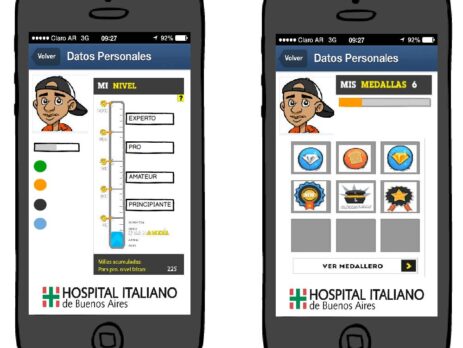We proposed and developed a gamified digital platform to support adolescents with diabetes mellitus in managing their condition. By integrating gamification techniques such as point systems, achievements, and social support features, the platform aims to improve patient engagement and adherence to treatment plans. The platform also includes telemonitoring and education tools to enhance self-management and foster healthier lifestyles among young diabetic patients.
What was the context of our study?
Diabetes mellitus is a chronic condition requiring consistent self-management, which is particularly challenging for adolescents. Traditional approaches often fail to sustain engagement and adherence among this age group. With increasing mobile device use among younger generations, gamification—applying game-like elements in non-game contexts—presents a promising solution to make self-management more engaging and effective.
What did we do?
We designed a gamified platform to motivate adolescents with diabetes to adhere to their treatment regimens. The platform incorporates features such as a point-based reward system for completing health-related tasks, levels to track progress, and social support mechanisms like groups and achievements. It also enables telemonitoring, allowing healthcare providers to track patient data and integrate it into personal health records for ongoing care.
What did we find?
The gamified elements helped break the complex and long-term management of diabetes into smaller, achievable goals. Adolescents reported increased motivation through immediate feedback and progress visualization. Social features enhanced peer support and accountability, while educational tools provided bite-sized, accessible health tips. However, challenges included balancing the game mechanics to avoid overemphasis on rewards and addressing privacy concerns for sharing health data.
Why is this important?
This platform highlights the potential of gamification to address adherence and engagement issues in chronic disease management. By making diabetes care more interactive and personalized, it offers a scalable model for improving health outcomes among adolescents. Its success underscores the value of combining technology, behavioral science, and user-centered design in healthcare innovation.
Reference
Giunti G, Ciancaglini A, Otero C, Baum A, González Bernaldo de Quirós F. The Use of a Gamified Platform to Empower and Increase Patient Engagement in Diabetes Mellitus Adolescents. AMIA Annual Symposium Proceedings. 2014. Link.

